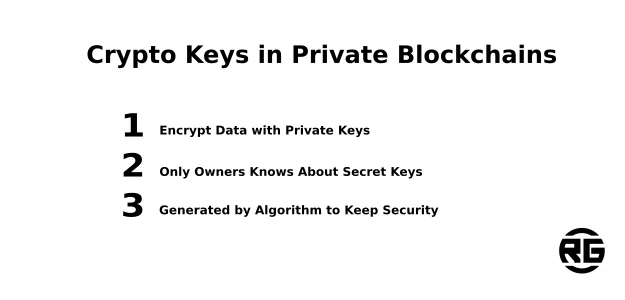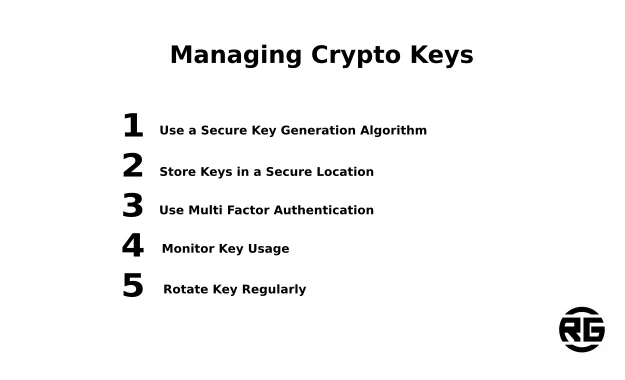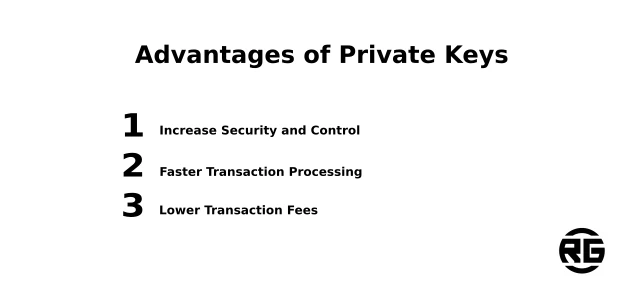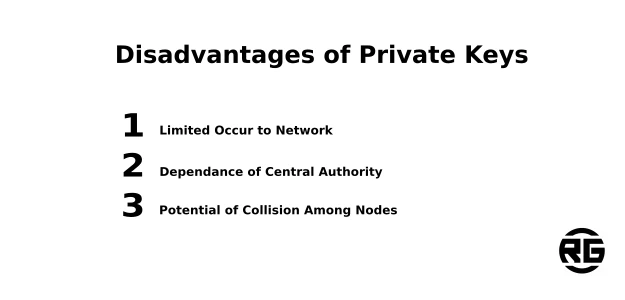Introduction
As the world becomes more digitized, so the need for secure digital transactions is becoming increasingly important. Blockchain technology is a decentralized and secure way of carrying out transactions, surely. When it is becoming more popular, and businesses are now looking into private blockchain as an alternative to public blockchain. What’s about it? It’s a permissioned digital ledger where only a select group of individuals have access, indeed.
In this article, I will explore private blockchain and the role of crypto keys in ensuring secure transactions.
About Private Blockchain
Private blockchain is a digital ledger that is only accessible to a select group of people. Obviously, it’s a permissioned blockchain where nodes need permission to join the network. So, organizations using them to require a high level of security and control over their data. They are similar to public blockchain, but it has some differences. Private blockchain is faster, more secure, and has fewer nodes compared to public cryptographic ledger.

Surely, private blockchain is different than public blockchain, but both of them using conception of blockchain technology.
Understanding Crypto Keys in Private Key Cryptography
In fact, private key cryptography is a method of encrypting data using a private key. The private key is a secret key that is only know by the owner. Then, the private key encrypt and decrypt data. Crypto keys are used in private key cryptography to ensure that the data is secure, surely. They are a set of characters that are used to encrypt and decrypt data. In case of crypto keys, they are generated using algorithms that are designed to be secure.
Certainly, one of the most famous solutions using advanced cryptography, including private keys, is OpenSSL.
The Importance of Private Keys in Blockchain Transactions
Of course, private keys are an essential part of cryptographic ledger transactions. Those private keys are used to sign transactions, then all ensures that the transaction is valid. Moreover, they are used to prove ownership of assets on the blockchain. Private keys are used to ensure that only authorized individuals can access the blockchain, indeed. Those keys are a critical part of the security of the blockchain.

Without a doubt, cryptography keys make private blockchains more safty and only ligal participants can access blockchain.
How Private Keys Ensure Secure Transactions
Surely, private keys ensure secure transactions in private blockchain by providing a secure way to sign transactions. They are used to prove ownership of assets on the blockchain, indeed. Furthermore, by them we ensure that only authorized individuals can access the blockchain. Private keys are stored securely and are not accessible to anyone except the owner. Private keys use complex algorithms and are designed to be secure.
Types of Crypto Keys in Private Key Cryptography
There are two types of crypto keys in private key cryptography: public keys and private keys. Public keys encrypt data, while private keys decrypt data. They are verify a digital signature, while private keys create a digital signature. Public keys and private keys are mathematically related, but it is impossible to derive the private key from the public key.
Best Practices for Managing Crypto Keys
Managing crypto keys is an essential part of their security. Here are some best practices for managing crypto keys in those type of blockchains:
a) use a secure key generation algorithm
b) store keys in a secure location
c) use multi-factor authentication
d) monitor key usage
e) rotate key regularly

In fact, to keep higher security level managing cryptographic keys is necessary.
Common Misconceptions About Private Keys
There are some common misconceptions about private keys in blockchain.
One misconception is that private keys are the same as passwords. While they both serve a similar purpose, private keys are more complex and secure than passwords.
Another misconception is that private keys can be recovered if lost. Unfortunately, if a private key is lost, the assets associated with that key are lost forever.
Advantages and Disadvantages
There are advantages and there are disadvantages, also. Some advantages include:
a) Increased security and control
b) Faster transaction processing
c) Lower transaction fees

Of course, private keys make your blockchain more secure, but only when security policy is managed in the right way.
Some following disadvantages of using them include:
a) Limited access to the network
b) Dependence on a central authority
c) Potential for collusion among nodes

If you want to be more secure you need to sacrifice another things like dependence of central authority or potential collisions with another network users. But, it’s always like that. When you what to achieve something, you need to sacrifice something.
Applications of Private Blockchain
They has many applications in various industries. Some applications include:
a) Supply chain management
b) Healthcare data management
c) Identity verification
Conclusion
Surely, private blockchain is becoming more popular as businesses look for secure ways to carry out transactions. Crypto keys are an essential part of private key cryptography and ensure that transactions are secure. Of course, the best practices for managing crypto keys include using a secure key generation algorithm, storing keys in a secure location, and rotating keys regularly. They has advantages and disadvantages, but it has many applications in various industries.

Leave a Reply
You must be logged in to post a comment.